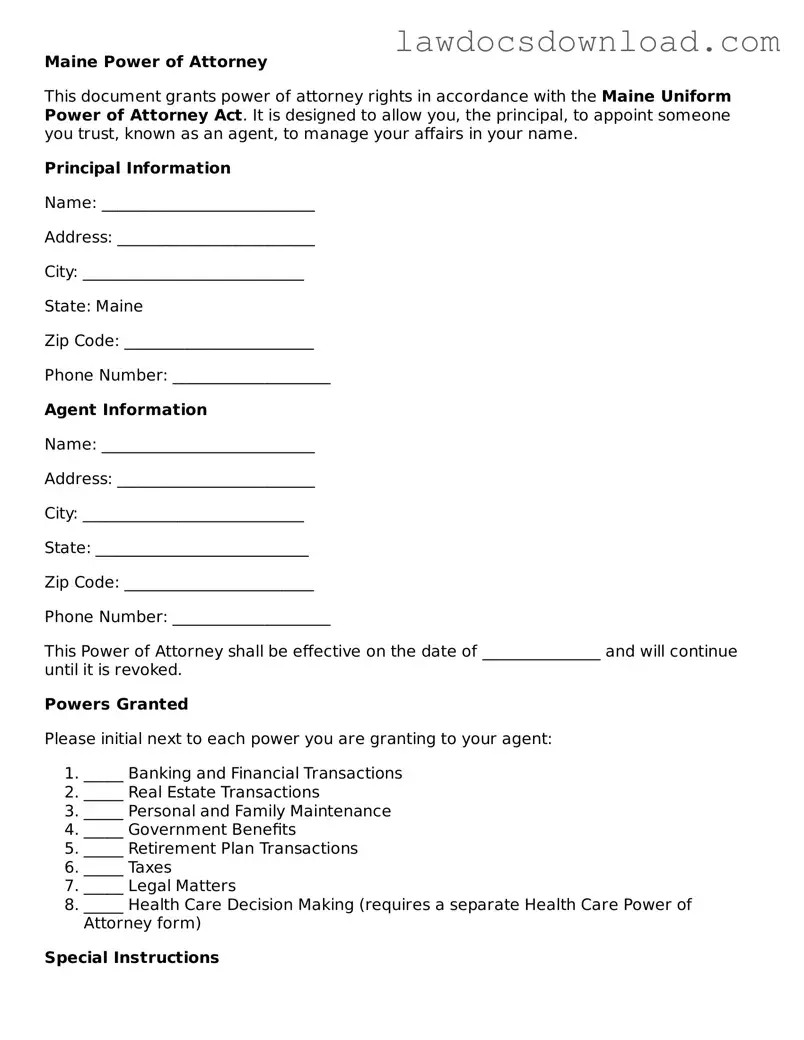Legal Maine Power of Attorney Form
A Maine Power of Attorney form is a legal document that allows a person, known as the principal, to delegate their decision-making powers to another person, known as the agent or attorney-in-fact. This form can cover a wide range of decisions, including financial, medical, or legal matters. It is a critical tool for planning for future incapacity or for situations where assistance in decision-making is needed.
Launch Power of Attorney Editor Here

Legal Maine Power of Attorney Form
Launch Power of Attorney Editor Here

Launch Power of Attorney Editor Here
or
Free Power of Attorney
Get this form done in minutes
Complete your Power of Attorney online and download the final PDF.